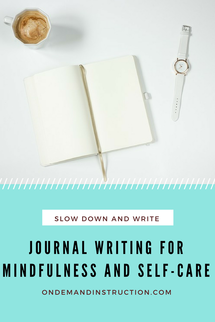 How many times have you set a writing goal but faltered along the way and given up? For me, this has been a recurring theme in my writing career. I start off strong then something happens, and before I know it, a week has gone by without any writing progress. This scenario has played out every time that I have set a writing goal for myself, and perhaps it sounds familiar for you too. Today, people’s lives are busier than ever, so it is not surprising that sticking to a goal is more complicated and challenging than ever. The way we read, study, write, work, parent, and interact today allows for more interruption, more distraction, and a lower sense of peaceful concentration than just a decade ago. That sense of overwhelm and distraction can derail a project. If you have read the writing guides by the greats like: Stephen King’s On Writing, Ray Bradbury’s Zen in the Art of Writing, or E.B. White’s Paris Review Interviews, then you know that many professionals recommend a daily writing practice—7 days a week 365 days a year. When I first read On Writing, the thought of King’s writing schedule overwhelmed me. How is he able to write every single day? Although I appreciate his dedication to the craft, I also have to recognize the differences in our lives. I work 50ish hours a week at my job plus a commute; I have elementary-aged children to raise, a house to manage, and other creative pursuits (I crochet, and turn wood). So, sure King is able to write 365 days a year, but in my life, there are too many tasks pushing their way into my schedule to allow for that. After reading several books and articles from the greats, and after failing at meeting my writing goals, I recognized that I needed to create my own path. Setting Workable Goals |
About the SiteWelcome, Writers! Archives
September 2023
|














 RSS Feed
RSS Feed